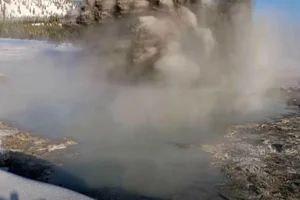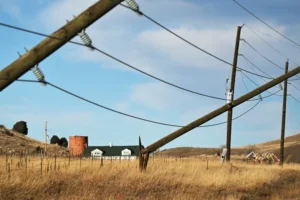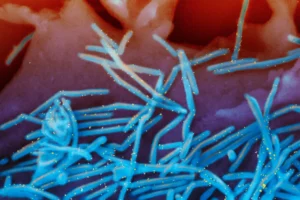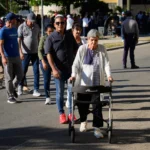WOMEN YOU SHOULD KNOW IN WYOMING: Riverton Woman Hopes to Amplify Indigenous Voices in Annual Bike Trek
All-female motorcycle group of ‘wind sisters’ mounts up to ride for MMIW awareness
- Published In: Other News & Features
- Last Updated: Jul 26, 2023
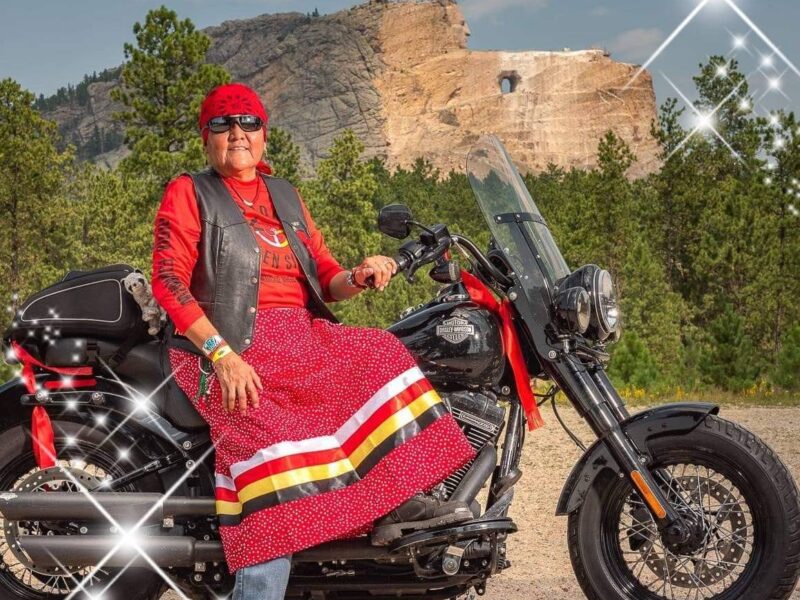
Corrine Tuma, 61, gears up for this year's 90-mile trek from Bear Butte State Park to the Crazy Horse Memorial in the Black Hills to raise awareness for missing and murdered Indigenous women and people. (Courtesy photo from Corrine Tuma)
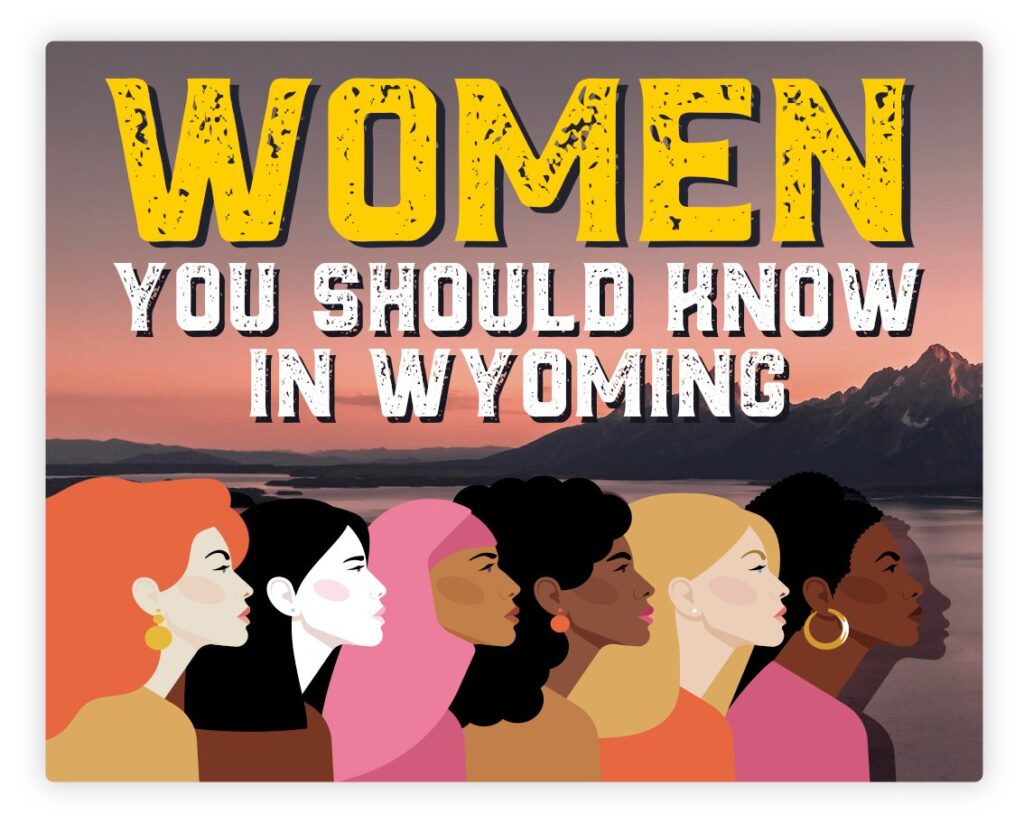
By Jennifer Kocher
Special to the Wyoming Truth
Four years ago, Corrine Tuma spotted an ad on social media about a motorcycle ride. A group of Indigenous female motorcyclists — all members of a grassroots movement called the Medicine Wheel Ride — planned to ride from Arizona to the annual Sturgis motorcycle rally in South Dakota. Their mission: to raise awareness about the epidemic of missing and murdered Indigenous women.
The ad struck a chord with the 61-year-old veteran rider, who wasn’t aware at the time of the epidemic of violence facing Indigenous people. Tuma had planned to go to Sturgis anyway and told her husband, Paul, that she wanted to ride with the women’s group.
That first ride was magical for her. Tuma met 10 women near the Little Bighorn Battlefield National Monument in Garryowen, Montana. From there, they rode to the Northern Cheyenne Indian Reservation in Lame Deer, Montana and then completed the 90-mile trek from Bear Butte State Park to the Crazy Horse Memorial in the Black Hills.
Along the way, the women shared moving stories about their missing and murdered loved ones.
“It touched my heart big time,” Tuma told the Wyoming Truth from her home in Riverton. “You can hear the pain in their voices. It was heartbreaking.”
Tuma bonded with her “wind sisters” and has ridden with them every year since. This year, she has organized a gathering for the out-of-town motorcyclists and locals on July 31at the Wind River Hotel and Casino, where she has worked in front-desk reservations for the past 15 years. The event begins at 7 p.m. in the casino’s Spring Mountain Room. Along with a prayer ceremony, there will be a special viewing of the movie, “We Ride for Her,” that was filmed by the Red Sand Project during the 2022 ride.
Strong women, strong voices
Although Tuma’s family has not experienced violence, she knows many residents on the Wind River Indian Reservation who have. Among them is Nicole Wagon, who lost two of her daughters. In 2019, Wagon’s 30-year-old daughter, Jocelyn Watt, was murdered in her home along with her boyfriend, Rudy Perez. A year later, the body of her 23-year-old daughter was discovered in a field on the reservation. Law enforcement claimed she died of drugs and hypothermia, but Wagon contends to this day that she was murdered.
It’s these two women that Tuma honors on the red ribbons she wears during the ride.
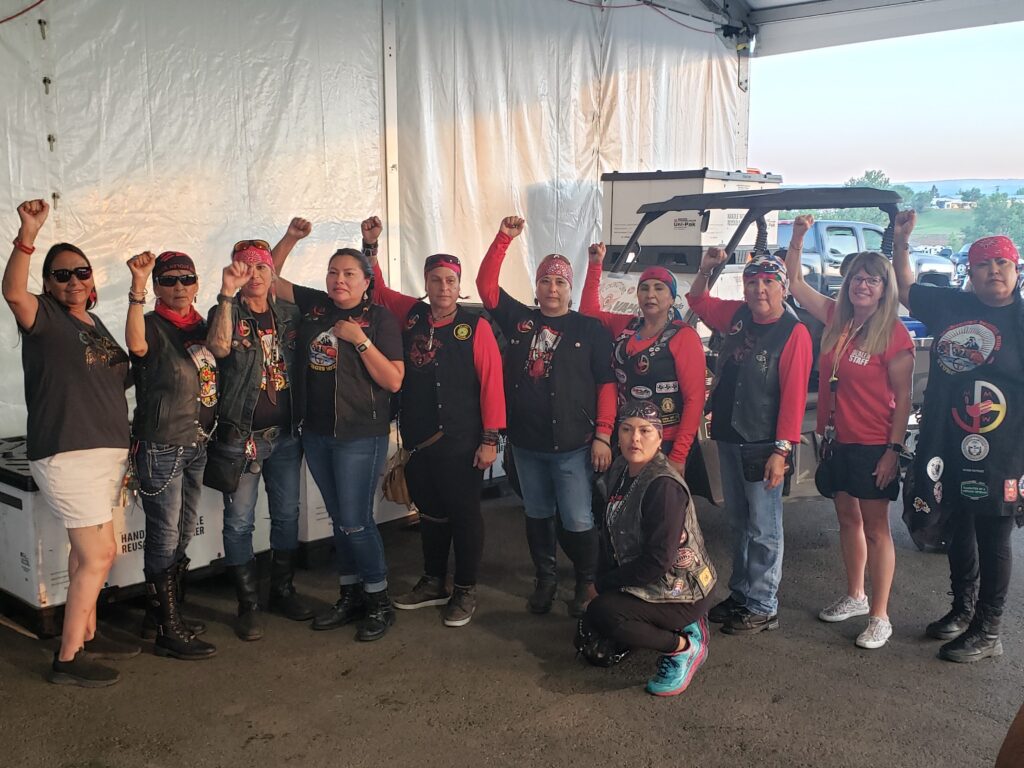
“Corrine and the other riders are bringing awareness to missing and murdered Indigenous women, and I applaud their efforts,” Wagon said. “My hope is that it helps others to not give up and to find justice.”
Tuma agreed: “We need to start somewhere to find our missing loved ones and advocate against the violence.”
Her own wheels
Tuma has been riding motorcycles for the past 27 years. She started riding when a former coworker began dating a guy with a motorcycle.
“I didn’t have my own bike, so I’d hop on the back of someone else’s bike,” she recalled.
That changed when a group of male motorcyclists came into the casino one day. Among the riders was Paul, the man who would become her second husband. The couple rode together until she purchased her own Harley-Davidson bike.
Tuma, who is Navajo, is originally from American Fork, Utah, but was raised in the Salt Lake City area. Tuma’s dad served on the school board of the Intermountain Indian School, a Native American boarding school in Brigham City, Utah, that closed in 1984, so the family moved off the Navajo Reservation in neighboring New Mexico. During the summer, Tuma and her family returned to the reservation and lived with her grandmother, who was a midwife.
It was here that Tuma learned the arts and traditions of her family and tribe. At 18, she met her first husband, a member of the Northern Arapaho tribe, and moved to Wind River in Wyoming, where the couple raised two sons.
After the couple divorced, Tuma moved to Riverton and worked a variety of jobs, including as a dispatcher for the Bureau of Indian Affairs forestry service, until landing her current job at the casino.
Now, she’s on a mission to continue raising awareness of missing and murdered Indigenous people though the annual motorcycle ride.
“This is the time to help others,” she said. “There are a lot of strong women with strong voices. This feeling of coming together is something that lifts you up and keeps you going, and I’m proud to be among all these strong women.”


